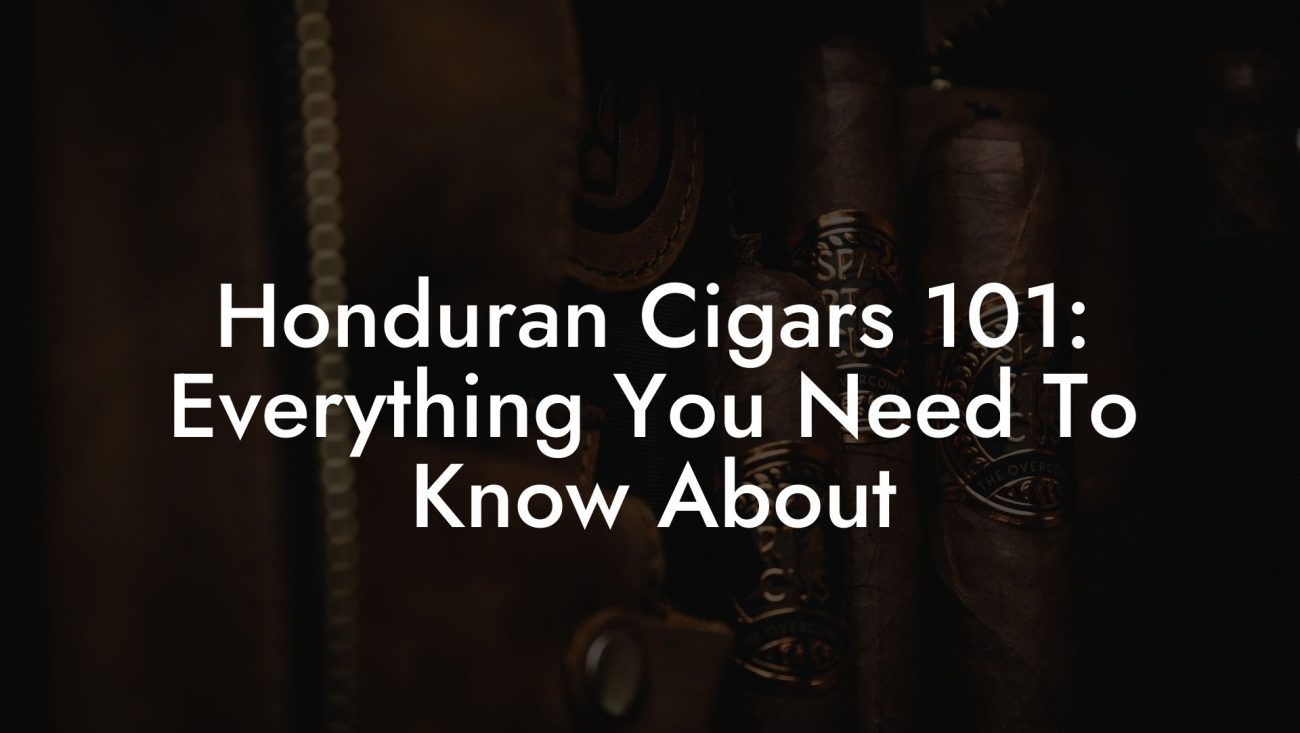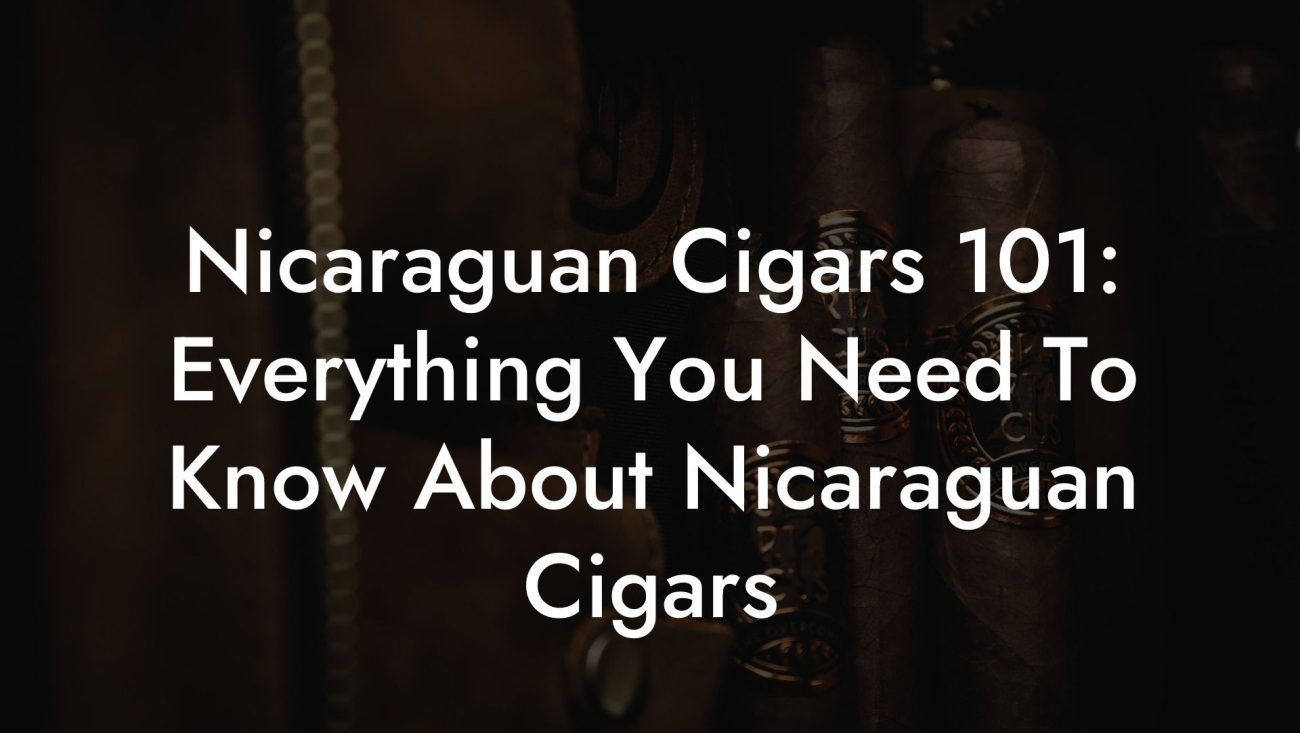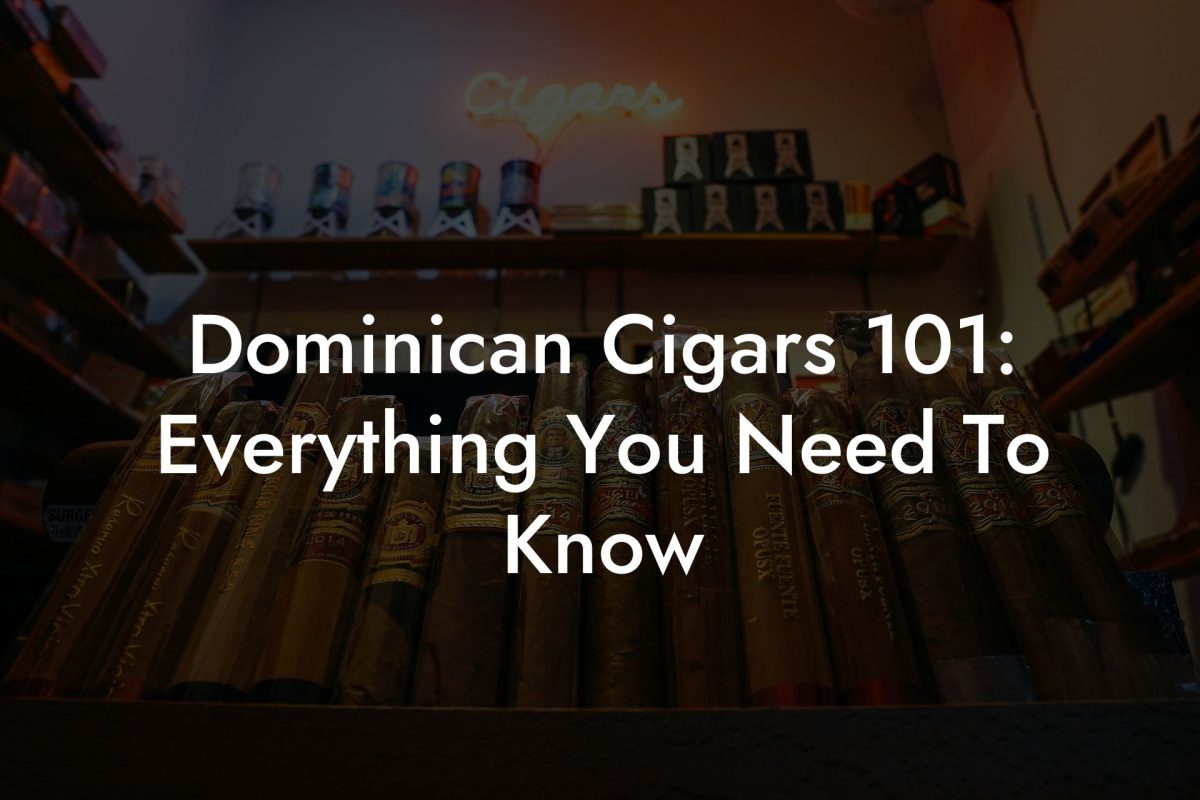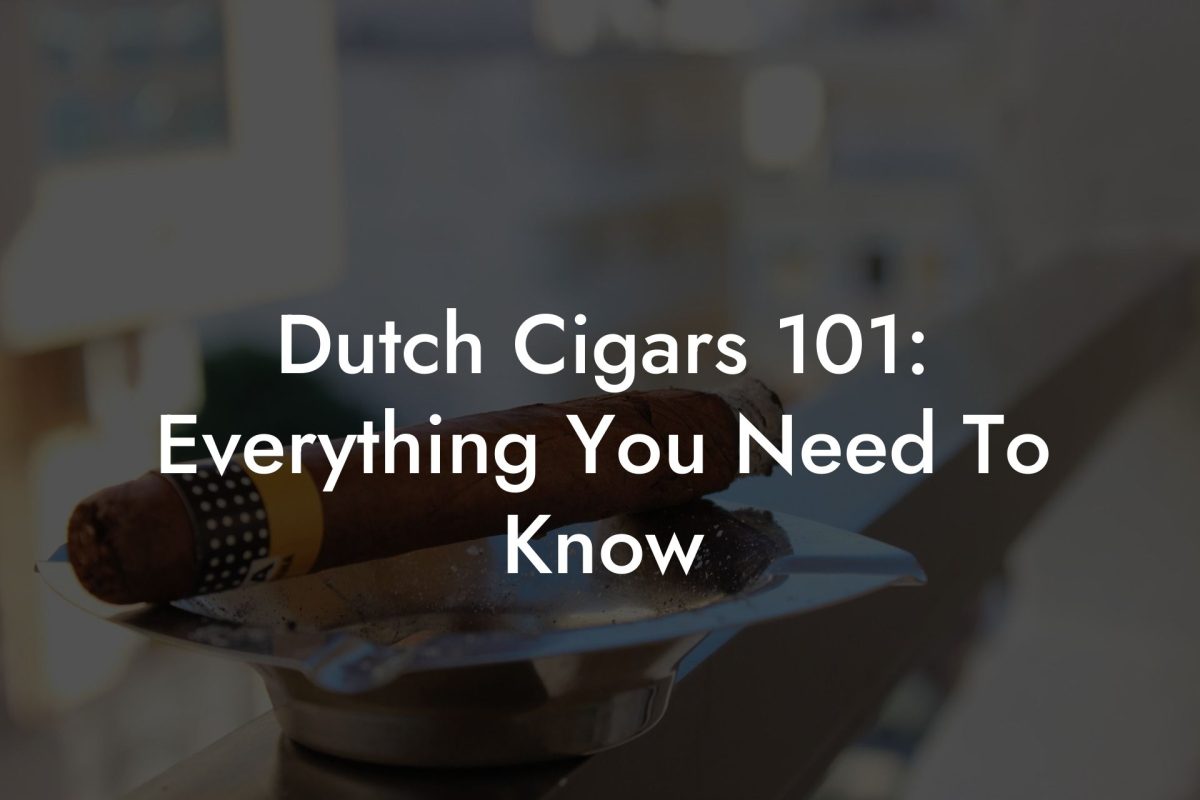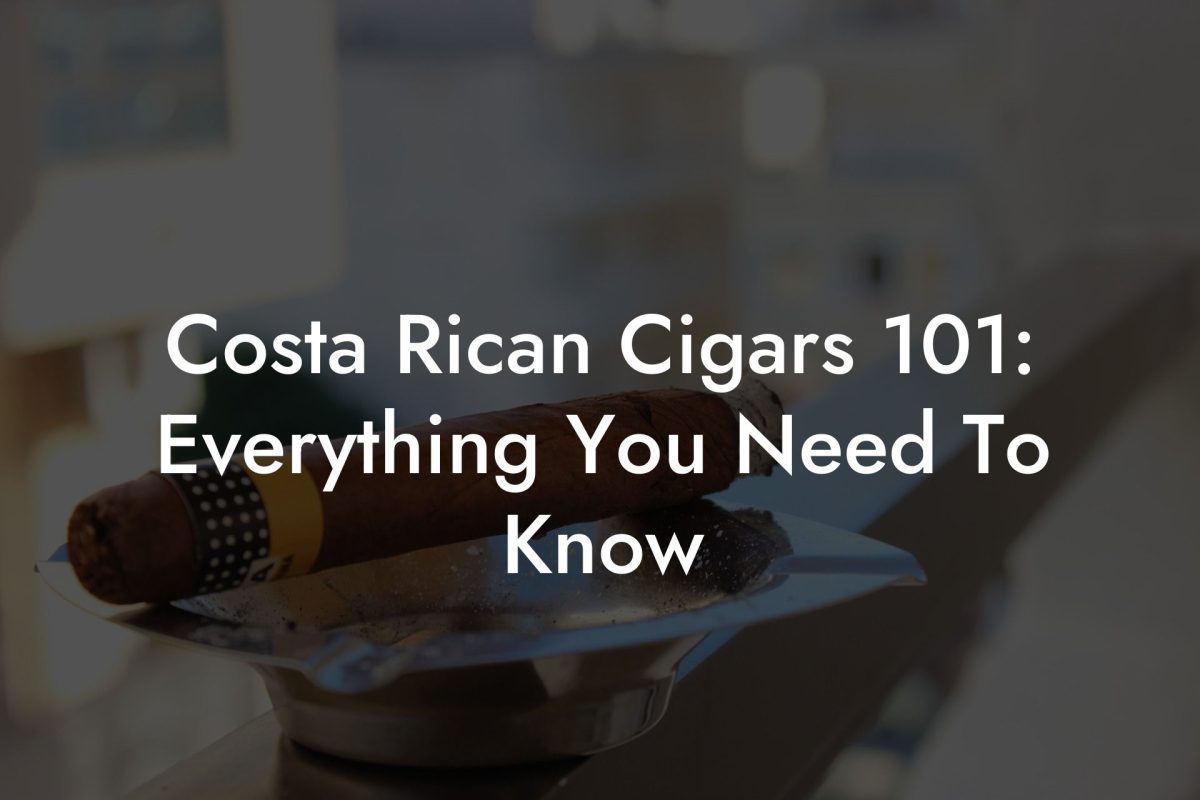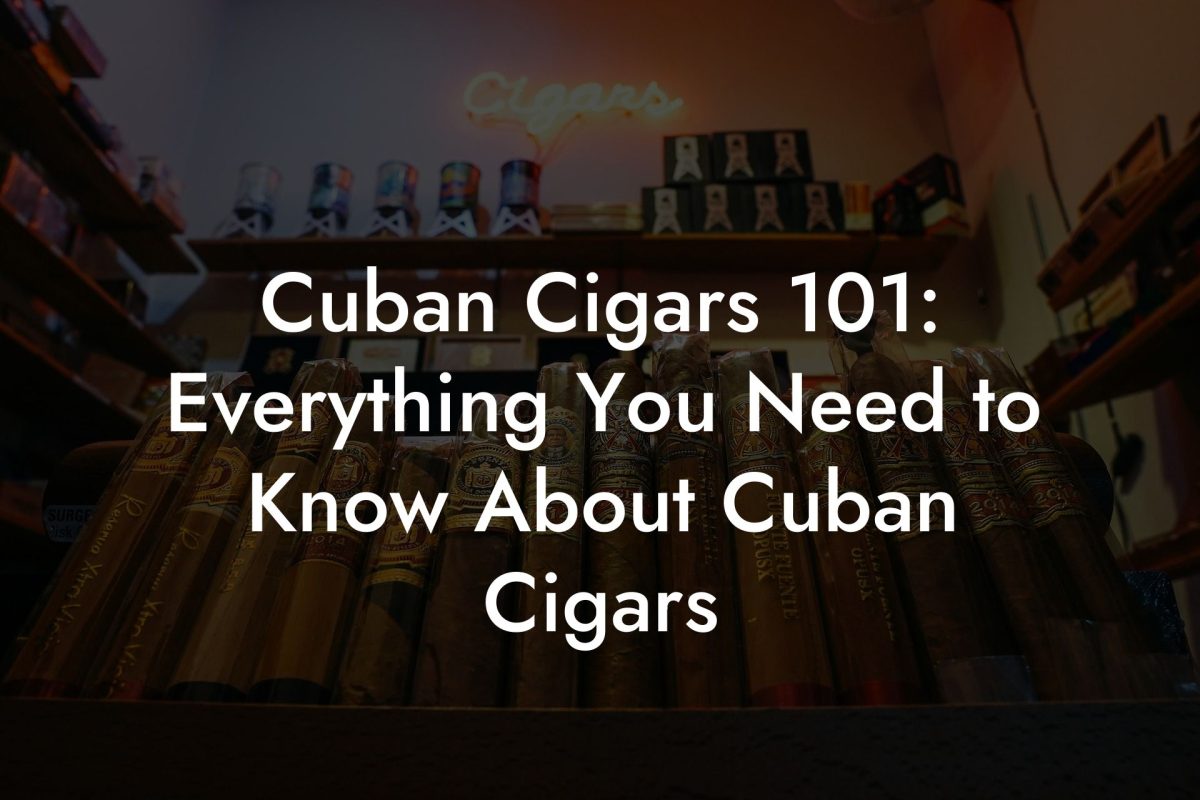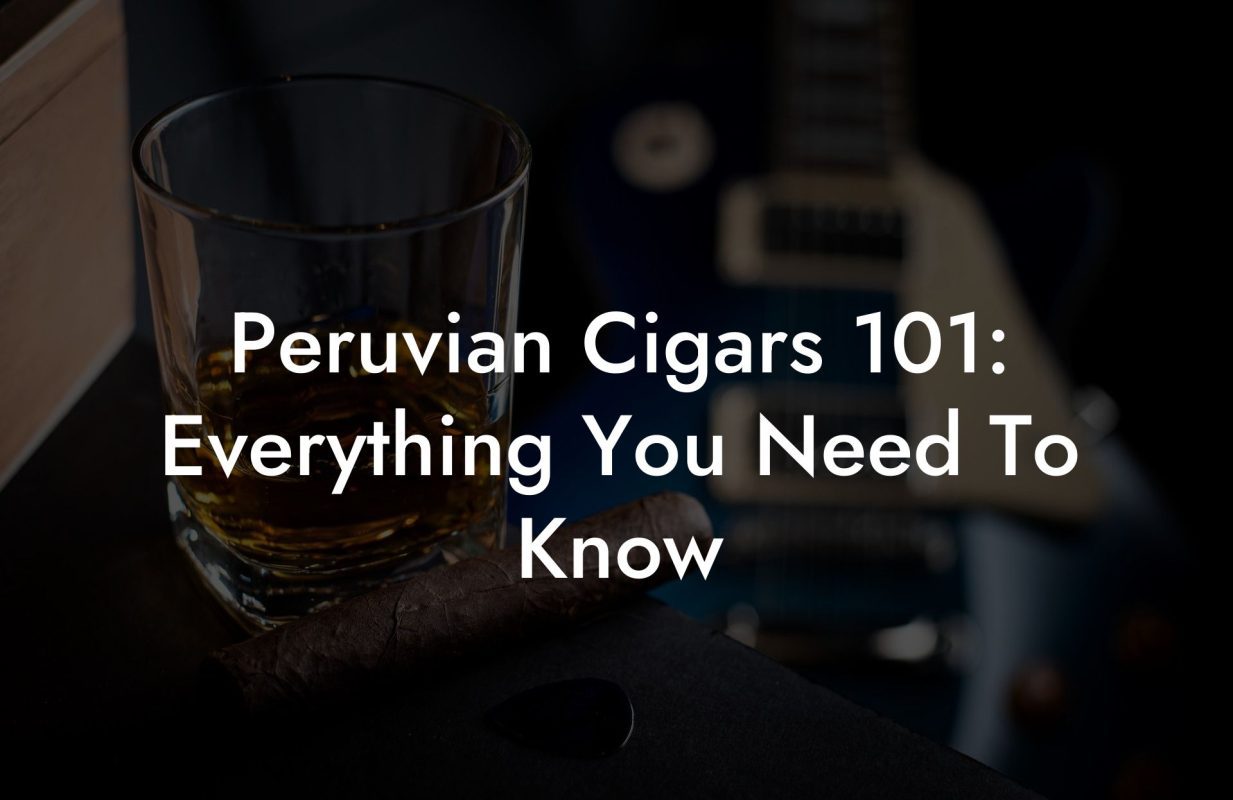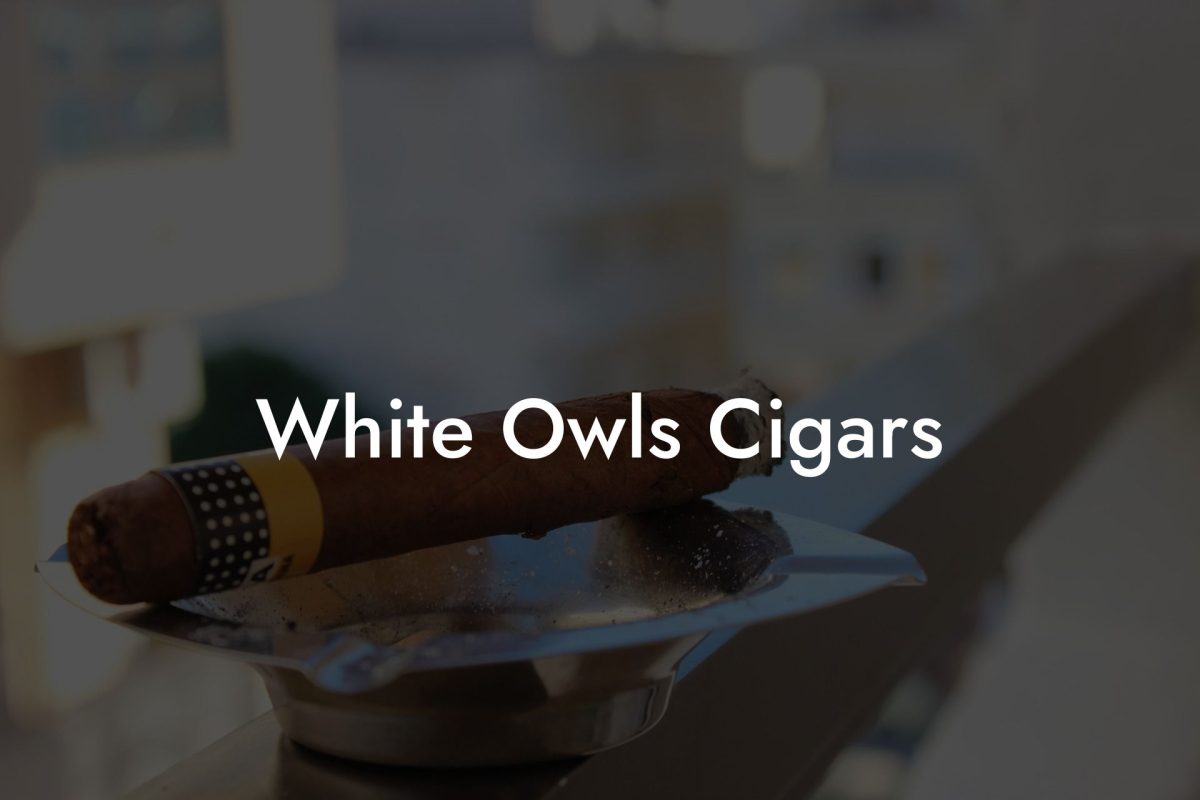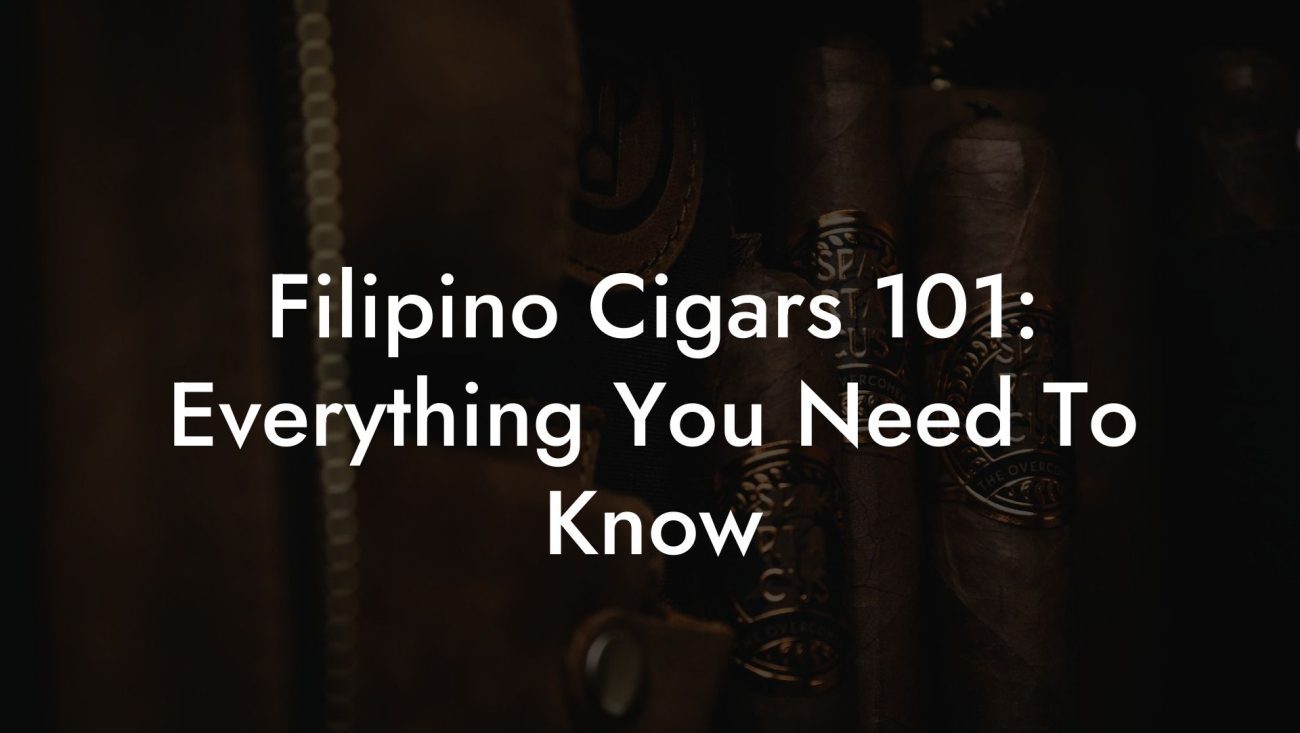Puff up your curiosity and settle in for a smoky deep-dive into one of today’s most buzzed-about debates: Are cigars actually healthier than cigarettes? In a world where lifestyle trends shift faster than the latest TikTok dance challenge, it might seem almost rebellious to question the status quo of smoking. But here we are, ready to light up this conversation (metaphorically speaking, of course) and break down the facts, myths, and unexpected insights that separate these two smoking sensations. Grab your metaphorical lighter and join us on a journey through folklore, scientific studies, and a splash of millennial wit as we compare cigars and cigarettes head-to-head.
Are Cigars Healthier Than Cigarettes Table of Contents
The Smoky Landscape: A Quick Overview
Tobacco in the Limelight: A Brief History of Cigars and Cigarettes
Cigars vs. Cigarettes: The Technical Breakdown
The Health Equation: Comparing Risks and Realities
Cultural Perceptions and Lifestyle Realities
Breaking Down the Myths: What Gen-Z and Millennials Need to Know
What Does Science Really Say? Studies on Tobacco and Health
Behavioral and Social Dimensions: How Smoking Shapes Identity
Modern Alternatives and Harm Reduction Strategies
Resources and Community Support: Your Next Steps
Personal Reflection: The Journey Toward an Informed Decision
Looking Ahead: The Future of Tobacco Use and Health Trends
Frequently Asked Questions: Your Cigar vs. Cigarette Conundrum Answered
Your Path to Informed Choices and a Healthier Lifestyle
Your Next Steps: Community, Resources, and Continued Learning
The Smoky Landscape: A Quick Overview
Cigars and cigarettes might share a common ancestry in tobacco, but they’ve carved out distinctly different identities in our cultural and health landscapes. While cigarettes are often entwined with fast-paced urban routines and a convenience-focused mindset, cigars evoke images of celebratory moments, luxury, and a slower, more contemplative approach to life. But does this cultural distinction mean that one is actually a “healthier” way to indulge in tobacco?
As we peel back the layers of tobacco leaves and puff by puff analysis, you'll see that the answer isn’t as clear-cut as it might seem. Much like comparing an artisanal latte to a fast-food coffee, the differences hinge on a blend of chemistry, usage patterns, and lifestyle choices. So, before you decide to swap one habit for the other, let’s dig in.
In this comprehensive guide, we’ll tackle the nitty-gritty details: What exactly makes cigars and cigarettes different at a chemical level? How do the risks compare when it comes to long-term health effects such as heart disease and various cancers? And what do clinical studies reveal about occasional cigar smoking versus habitual cigarette use? Whether you’re here out of academic curiosity or personal concern, we promise a ride full of surprising twists and plenty of straight talk.
Tobacco in the Limelight: A Brief History of Cigars and Cigarettes
The saga of tobacco use is as layered as the finest hand-rolled cigar, spanning centuries and cultures. Cigars have long enjoyed a reputation as symbols of status and success. Their roots are intertwined with colonial history, where cigars were a luxurious commodity, enjoyed by the elite in smoky clubs and upscale gatherings. Conversely, cigarettes emerged as the everyday choice of the masses, especially with the industrial revolution ramping up production and making them widely accessible.
This duality isn’t just historical trivia, it shapes how we view the two products today. Cigarettes are often seen as quick nicotine fixes meant for on-the-go lifestyles, whereas cigars carry an aura of ritual and savoring. This cultural distinction spills over into discussions of health. Many believe that the leisurely nature of cigar smoking might somehow mitigate the damaging effects of tobacco use, while modern cigarettes, with their engineered additives meant to boost addictiveness, have earned a notorious reputation.
However, history also tells us that cultural nuance doesn’t erase scientific fact. The health implications of inhaling tobacco smoke remain significant, regardless of packaging or prestige. By weaving together history with modern research, we can better understand whether these age-old practices deserve a pat on the back or a serious side-eye from a health perspective.
Cigars vs. Cigarettes: The Technical Breakdown
At first glance, cigars and cigarettes might appear to be siblings in the world of smoked tobacco, but a closer look reveals distinct differences in composition, production, and consumption habits.
Composition and Craftsmanship
Cigarettes are typically made of finely cut tobacco with a blend of additives designed to boost flavor, improve burning, and increase nicotine delivery. The use of additives, while enhancing the sensory experience for some, also raises questions about potential additional health risks.
On the flip side, cigars are usually hand-rolled (or made with less industrial intervention) using whole tobacco leaves. This artisanal process allows cigars to develop complex flavors that are often compared to tasting notes in a fine wine. However, it’s important to note that the absence of additives does not automatically confer a health benefit. The sheer amount of tobacco found in a typical cigar and the way it’s consumed can still pose significant risks.
Nikotine and Its Delivery
One of the key factors in comparing health implications is nicotine, a highly addictive substance with complex effects on the body. Cigarettes are engineered for a rapid spike in nicotine delivery via inhalation; this is why cigarette smokers tend to develop strong addictions rapidly. The fine particles in cigarette smoke penetrate deep into the lungs, delivering a potent dose of nicotine along with a cocktail of carcinogens.
With cigars, nicotine delivery can be more variable. Many cigar aficionados don’t inhale in the traditional sense. Instead, the smoke is savored for its aroma and flavor, with much of the nicotine absorbed through the lining of the mouth. Yet, even without deep inhalation, the overall consumption of nicotine in a single cigar can rival that of multiple cigarettes. So, while the pattern of nicotine absorption differs, the addictive potential and health risks remain a serious consideration.
Smoke Volume and Chemical Concentration
A single cigar can produce up to 10 times the volume of smoke generated by a cigarette. This might sound like a case where size matters, in a bad way. The larger smoke volume means a broader exposure to harmful chemicals like tar, carbon monoxide, ammonia, and various carcinogens. Interestingly, while some argue that not inhaling reduces risk, even a limited exposure still contributes to oral, throat, and even lung cancers.
Additionally, the chemical makeup in a cigar's smoke can be surprisingly potent due to the fermentation process used in tobacco curing. The result? An intense sensory experience that might lead you to feel like you’re indulging in something smoother or “more natural,” even though the underlying hazards persist.
The Health Equation: Comparing Risks and Realities
Enter the heart of the debate: health. Many enthusiasts claim that cigar smoking, when practiced in moderation and without inhaling, is less dangerous than cigarette smoking. But let’s break down the facts to see if this claim holds water (or smoke).
Lung Health and Respiratory Risks
One of the stark differences lies in the impact on lung health. Cigarette smokers typically inhale deeply, which means that the toxic chemicals have direct access to the delicate tissues of the lungs. This correlation strongly ties cigarettes to lung cancer, chronic obstructive pulmonary disease (COPD), and other respiratory ailments.
Cigar smokers, in contrast, often refrain from deep inhalation. Instead, the smoke tends to linger in the mouth and throat, which does reduce lung exposure. However, this does not equate to safety. Research has indicated that even without inhaling deeply, cigar smoking is associated with heightened risks of oral, esophageal, and laryngeal cancers. Moreover, occasional accidental inhalation or simply the proximity of the smoke to lung tissues can still have deleterious effects.
Cardiovascular Concerns
Both cigars and cigarettes contribute to an elevated risk of cardiovascular diseases, think heart attacks and strokes. Nicotine, regardless of its source, is a stimulant that increases heart rate and blood pressure. Additionally, the chemicals in tobacco smoke contribute to the buildup of plaque in arteries, which can lead to atherosclerosis. So, whether you’re puffing on a cigarette between work meetings or unwinding in a velvet smoking lounge with a fine cigar, your ticker might still be under assault.
Interestingly, certain studies note that while daily cigarette smoking is more consistently associated with heart disease, the cumulative exposure that heavy cigar smokers experience can present similar levels of risk. The intermittent, “occasional” nature of cigar smoking is sometimes used as an argument for reduced harm, but even social cigar smokers should remain aware of the lurking health hazards.
Oral Health and Cancer Risks
The impact on oral health is perhaps where the differences between cigars and cigarettes become most nuanced. Cigarette smoke, due to its inhalation pattern, directly influences the lungs, but it also damages the mouth, leading to a higher incidence of gum disease, dental problems, and oral cancer.
In the case of cigars, the smoke's extended contact with the lips, tongue, and throat due to non-inhaled exposure means that those tissues are subjected to the full brunt of tobacco toxins. This prolonged exposure is linked to a higher risk of cancers in these regions. So while your lungs might be spared in some cases, your smile isn’t necessarily safe.
Secondhand Smoke and Public Health
No discussion of tobacco can ignore the hazards of secondhand smoke. Whether it’s a cigarette or a cigar, the smoke you exhale, and that drifts off into the surrounding air, exposes bystanders to toxic chemicals. The larger, slower-burning cigar might seem like a less intense threat compared to the steady stream of cigarette smoke, but it can still contribute to indoor air pollution and pose health risks, particularly in poorly ventilated areas.
In essence, the health risks are multifaceted. Reducing harm by never inhaling isn’t a magic bullet, and the cumulative effects of environmental exposure play an undeniable role in public health dynamics.
Cultural Perceptions and Lifestyle Realities
The narrative of “healthier” cigar smoking versus cigarette smoking goes beyond the lab results and into the realm of personal identity. For many, cigars aren’t simply about nicotine, they’re about marking milestones, celebrating achievements, or partaking in an artful ritual. Think of a cigar as an accessory to the lifestyle of leisure and reflection. In contrast, cigarettes have long been associated with stress, urgency, and a kind of urban hustle.
Social media, where every post is a curated glimpse of an ideal life, has amplified the allure of paradoxical self-care rituals like “occasional cigar evenings.” Even though the underlying science warns of various health pitfalls, the aesthetics and exclusivity associated with cigars continue to make them a popular choice among some Gen-Z and millennial circles. That said, savvy young smokers are increasingly informed, and many now debate not just the act of smoking but the environmental and ethical implications of tobacco production and consumption.
Modern discourse on this topic also involves discussions of moderation, harm reduction, and alternative nicotine delivery systems. With the rise of vaping and heated tobacco products, the old binary of cigar versus cigarette is expanding into a multifaceted conversation about risk, lifestyle, and personal choice – each accompanied by its own set of unique challenges and scientific debates.
Breaking Down the Myths: What Gen-Z and Millennials Need to Know
In today’s fast-paced, hyper-connected world, information is available at the swipe of a finger, but so is misinformation. The myth that cigars are “healthier” than cigarettes is one of the many misconceptions swirling around social media feeds and conversation circles. Let’s bust some myths and set the record straight.
Myth #1: “Cigar Smoking is Just for Special Occasions, So It’s Safer”
Sure, rare indulgence might reduce your overall exposure compared to a daily habit, but it’s all about the dose. Even an occasional cigar can pack enough nicotine and carcinogens to spike your body’s stress responses and contribute to long-term damage.
Myth #2: “Since I Don’t Inhale, I’m in the Clear”
Not inhaling might lower your risk for lung-related diseases, but it shifts the damage to your oral cavity, throat, and esophagus. The toxins still have a chance to wreak havoc, and the risk of cancers in these areas remains significant.
Myth #3: “Cigars Are Natural and Hand-Rolled, Hence Safer”
The artisanal nature of cigar production might sound appealing, but “natural” doesn’t equate to healthful. Tobacco is inherently a risky substance, and the processes involved, fermentation, curing, and aging, can sometimes even concentrate harmful chemicals rather than eliminate them.
Dispelling these myths is crucial for making informed choices. Recognizing that every tobacco product, whether wrapped in a sleek wrapper or hidden in a paper carton, carries inherent risks is the first step towards smarter decisions.
What Does Science Really Say? Studies on Tobacco and Health
Let’s get nerdy for a bit. Emerging research and clinical studies offer a complex picture that resists simple answers. While many studies confirm the serious risks connected with cigarette smoking, especially concerning respiratory and cardiovascular health, the data on cigars is a bit more variegated.
Some epidemiological studies suggest that the risk of lung cancer is lower in cigar smokers who do not inhale. However, these same studies raise alarm bells about increased incidences of oral, pharyngeal, and esophageal cancers. Other research indicates that there’s no such thing as a “safe” level of tobacco exposure, so even infrequent cigar smoking can set off the molecular fireworks that lead to chronic diseases.
Moreover, controlled clinical experiments have demonstrated that compounds like nicotine, tar, and carbon monoxide, found in both cigars and cigarettes, share similar biochemical pathways that damage organs. Variability in individual genetics, frequency of smoking, and exposure to secondhand smoke further complicates the picture. In short, the science underlines one irrefutable truth: every puff contributes to a long-term risk profile that cannot be ignored.
It’s also worth noting that the landscape of tobacco research evolves continuously. New technologies, better measurement techniques, and longer-term studies are gradually painting a clearer picture of how all forms of tobacco affect the human body. In the meantime, the safest route for your health remains clear: minimizing smoke exposure as much as possible.
Behavioral and Social Dimensions: How Smoking Shapes Identity
In the age of Instagram aesthetics and YouTube reviews, the act of smoking has transcended personal habits and entered the realm of identity performance. For some, the image of smoking a finely crafted cigar is pulled from the pages of a vintage novel; for others, it’s merely an accessible way to dissect the nuances of nicotine trends.
Many young adults today see smoking as a form of rebellion, a way to break free from the confines of mainstream health narratives, even while they are aware of the risks. Conversely, debates on campus and in virtual forums often frame the issue as one of harm reduction. Is it better to choose a cigar once in a while or to lean on cigarettes as a daily crutch? The conversation mirrors larger societal battles about balance, moderation, and personal responsibility.
This social interplay can sometimes lead to a dangerous normalization of tobacco use among impressionable audiences. While the occasional cigar might be embraced as a symbol of sophistication or a celebratory moment, the underlying health ramifications remain as potent as ever. The key takeaway? In our quest for cool aesthetics and trend-setting moments, it’s vital to ground ourselves in the reality that every tobacco product carries a cost, sometimes invisible, sometimes a little too tangible.
Modern Alternatives and Harm Reduction Strategies
For those who can’t quite let go of their tobacco rituals, harm reduction might be a sensible middle ground. Modern alternatives, ranging from e-cigarettes and vaping devices to heated tobacco products, have emerged as ways for individuals to satisfy their nicotine cravings while theoretically reducing exposure to some harmful chemicals.
Vaping, for example, buzzes in the background as a cleaner alternative to traditional cigarettes. However, even as vaping products undergo continuous regulation and research scrutiny, they aren’t entirely devoid of risk. Similarly, some cigar aficionados are turning to premium products with organic leaves and fewer additives, hoping to reduce health hazards. Yet, “reduced harm” must not be mistaken for “no harm”, the science remains firmly in the camp of caution.
For those curious souls who still wish to enjoy cigars but are wary of long-term consequences, adopting moderation, monitoring overall exposure, and staying informed about the latest research are essential strategies. Couple these choices with robust lifestyle habits, like maintaining a healthy diet, exercising, and mitigating stress, and you might just tip the scales toward a slightly less risky profile.
Resources and Community Support: Your Next Steps
Whether you’re a seasoned smoker, a curious observer, or someone grappling with your relationship to tobacco, knowledge is your most powerful tool. Diverse communities, both on and offline, offer resources and support, everything from tobacco cessation groups to forums where users share insights on modern smoking alternatives.
Consider exploring reputable health websites for the latest studies on tobacco research, joining community groups where harm reduction strategies are discussed, and even talking to healthcare professionals who can tailor advice based on your unique lifestyle. Platforms like Reddit, wellness blogs, or even Instagram communities can be treasure troves of firsthand testimonials filtered through the lens of modern skepticism and wit.
The modern smoker is more informed than ever before. With the right community support and reliable resources, you can make choices that align with both your lifestyle aspirations and a commitment to your long-term health. Remember: in the digital era, learning never stops, so keep exploring, keep questioning, and keep challenging the norms.
Personal Reflection: The Journey Toward an Informed Decision
Making health decisions in a world filled with contradictory advice can feel as complex as choosing the perfect filter for your latest selfie. That’s why balancing personal experience with scientific data is so crucial. Think of it as crafting your own narrative, one where informed choices reign supreme over impulsive trends.
Reflect on your own smoking habits, your social influences, and your long-term health goals. Are you using tobacco as a stress-relief mechanism, a social accessory, or simply out of habit? Understanding your motivations not only empowers you to decide whether switching from cigarettes to cigars (or vice versa) is a sensible move but also opens up possibilities for addressing underlying issues through healthier alternatives.
Whether you choose to indulge occasionally in that artfully rolled cigar or decide to quit altogether, remember that every choice is part of a broader journey towards self-care. Stay curious, keep informed, and never be afraid to challenge conventional wisdom, even when it comes swirling in a cloud of smoke.
Looking Ahead: The Future of Tobacco Use and Health Trends
The conversation on tobacco use is not static, it’s evolving with breakthroughs in research, shifts in cultural perceptions, and the emergence of new products on the market. As more young adults embrace a lifestyle focused on holistic well-being, the dialogue is increasingly leaning toward personalized decisions, harm reduction frameworks, and innovative alternatives that challenge the old paradigms.
Future health trends may very well include stricter regulations, better-designed alternatives, and a broader acceptance of individualized risk management. With technology enabling more precise monitoring of health markers, you may soon be able to track exactly how your lifestyle choices affect your body in real time, allowing for tunable adjustments along the way.
In parallel, public health policies are evolving, too. Researchers, policy makers, and community influencers are collaborating to offer balanced information that respects personal freedom while safeguarding public health. For the Gen-Z and millennial cohorts, this means being offered not just warnings and statistics, but also practical, relatable advice that meshes seamlessly with a digitally connected life.
So, what does the future hold? Possibly a blend of tradition and innovation, where the allure of a classic cigar meets the digital precision of modern health analytics. In this brave new world, staying informed and connected will be key to making choices that serve both your lifestyle and your well-being.
Frequently Asked Questions: Your Cigar vs. Cigarette Conundrum Answered
Below are some frequently asked questions to help clear the smoky haze surrounding the health impacts of cigars and cigarettes.
1. Are cigars really less harmful than cigarettes if I don’t inhale?
Even though many cigar smokers choose not to inhale deeply, the exposure to tobacco toxins still affects the mouth, throat, and even the lungs with accidental inhalation. The risks for cancers in these areas remain significant.
2. What health risks are associated with casual cigar smoking?
Casual cigar smoking can increase the risk of oral, esophageal, and laryngeal cancers, as well as contribute to cardiovascular issues. Even infrequent use exposes you to nicotine and other harmful chemicals.
3. How do the nicotine delivery methods differ between cigars and cigarettes?
Cigarettes are designed for deep inhalation, delivering nicotine rapidly to the lungs, while many cigar smokers absorb nicotine through the lining of the mouth. However, both methods carry the risk of nicotine addiction.
4. Is there any safe way to enjoy tobacco products?
No form of tobacco use is completely safe. Harm reduction strategies, such as moderation and switching to less harmful alternatives, can help reduce risks, but abstaining altogether is the surest way to avoid tobacco-related health problems.
5. How does secondhand smoke from cigars compare with that from cigarettes?
Secondhand smoke from both cigars and cigarettes contains harmful chemicals. Although cigar smoke is often released more slowly, its volume and potency can still pose serious health risks to those nearby.
6. Can switching from cigarettes to cigars reduce my health risks?
Switching to cigars might alter the pattern of risk, reducing lung exposure while increasing oral and throat risks, but it does not eliminate the harms of tobacco exposure. Each method has its unique health trade-offs.
7. What alternatives exist for those looking to quit smoking altogether?
Many alternatives exist, including e-cigarettes, nicotine replacement therapies, and behavioral counseling programs. These options can be effective in reducing tobacco dependence and promoting overall health.
Being informed about the risks and alternatives is the first step toward making a healthier choice. Remember to consult healthcare professionals for personalized advice.
Your Path to Informed Choices and a Healthier Lifestyle
As the smoke clears, one thing stands out: there is no magic bullet when it comes to the tobacco debate. Whether you lean toward cigars, cigarettes, or digital vape alternatives, the important takeaway is to stay informed and conscious about your health choices. Understand that each puff, be it a slow, deliberate draw on a fine cigar during a celebration or a rapid series of cigarette drags during a hectic day, carries potential long-term effects.
Empower yourself with knowledge. Engage with health professionals, keep up with the latest research, and participate in communities that offer balanced, no-nonsense perspectives on tobacco use. Informed decision-making isn’t just a trend, it’s the cornerstone of modern self-care.
Your journey to a healthier lifestyle starts with asking the tough questions about habits that might seem glamorous or effortlessly cool on the surface. In a world where every choice has weight, let your decisions be backed by facts and a commitment to your long-term well-being. Life is too short for smoke and mirrors, embrace clarity, balance, and above all, a dedication to making choices that help you thrive.
Your Next Steps: Community, Resources, and Continued Learning
Ready to take control of your health journey? Begin by exploring resources available through reputable health organizations, community forums, and even digital apps that track your smoking habits and offer tailored cessation programs. Surround yourself with people who share a commitment to well-being, whether that’s joining online communities or local support groups.
Never underestimate the power of a well-informed community in navigating complex lifestyle decisions. Whether you’re deciding to gradually reduce your tobacco intake or looking for alternatives that offer harm reduction, staying connected with expert advice and peer support is crucial.
The conversation about tobacco is evolving constantly, and staying updated means subscribing to trusted news feeds, following scientific journals, and engaging in discussions that challenge conventional wisdom. With every step, celebrate your progress and remain open to change, because every informed decision is a victory for your future self.
Your journey toward a healthier, more conscious lifestyle is a dynamic process. By integrating research, personal reflection, and community insights, you are empowered to make choices that feel right for you. Embrace the dialogue, challenge the status quo, and remember: your health is your most valuable asset.


